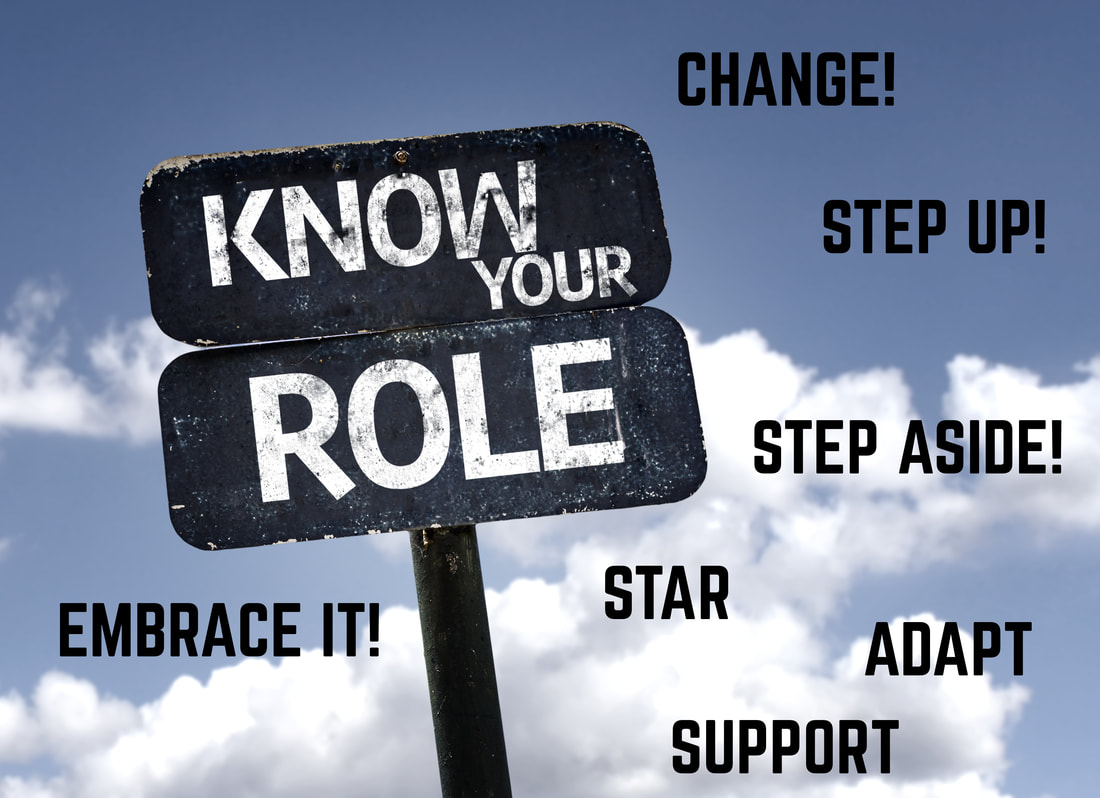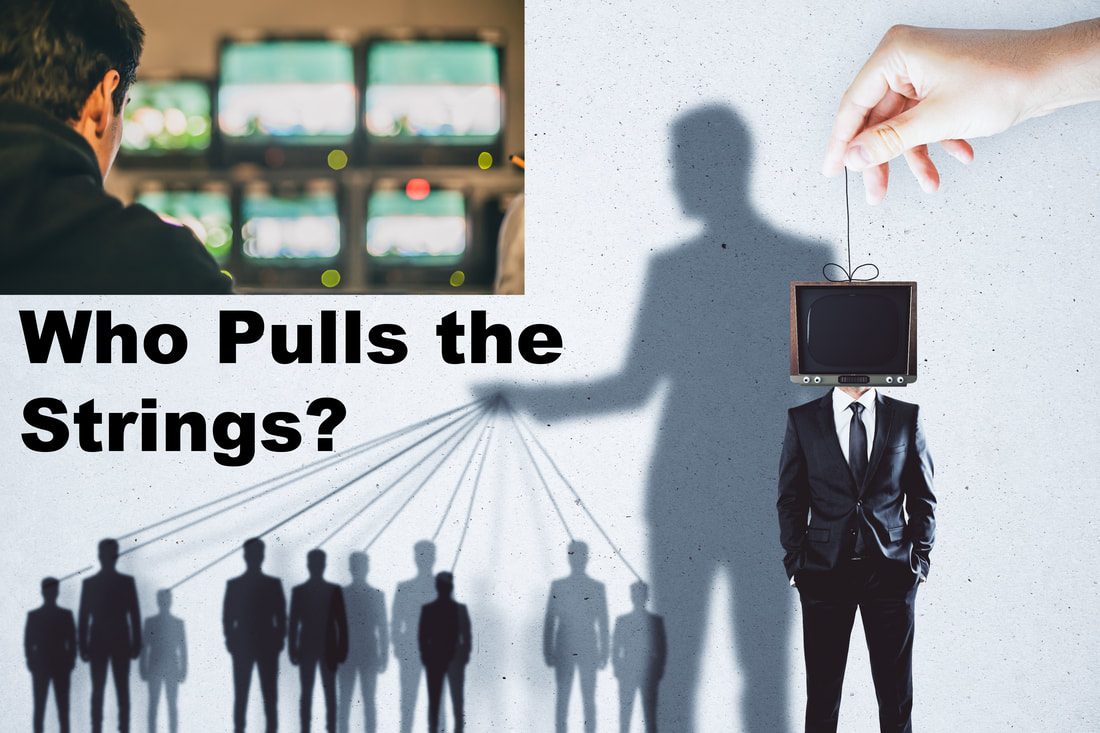Bridging Leadership Lessons from the Workplace and Those Experiences Shaping Today's Youth and Tomorrow's Leaders
 In Jim Collins iconic book, Good to Great, he found the key to having a great organization or team is to get the right people on the bus. He breaks it into 3 key points:
His premise is that if you can first get the right people on the bus, then you can worry about getting them in the right seats. When you start with the right people, they will find the seats that are the best fit for them or will be willing to listen to input from others as they work together to get in the seats that are best for the experience of everyone on the trip. Many times, in life we don’t have the luxury starting out with who we want on our team. We get a promotion at work, we are born into a family, our high school team is made up from the kids in our community. In these situations, you must keep your eye out for those who have the potential to be the teammates you need and who are willing to grow into those teammates. Making sure those on your team are aware of the roles that exist, is essential to promoting alignment to that bigger purpose you are all working towards. Making them aware that a role does not limit or confine you, rather it provides clarity of what is expected and how it connects with others. Stepping Up Your Role What it also does, as pointed out by Jim Collins above, is to allow you to easily adapt to a changing environment. Over time or as quickly during the course of a game. Your team’s number one scorer may have an off night shooting the ball and it is time for you to step up and into the spotlight. When I was a young man in high school, I had one of those nights where nothing seemed to fall. It was a packed gym as the neighboring town, whose team had been struggling all season, was embracing the role of the underdog and created an atmosphere that was anticipating the upset. No matter what I did, shots were not falling, I was making mistakes, and frustration led to uncharacteristic fouls. As the team held me to 15pts below my season average, our senior point guard stepped up and answered the call. J.J. was probably our 6th leading scorer and rarely even shot the basketball, but this night he responded and changed his role to lead us to victory. Now, if I stopped there, it would be a great feel-good moment for everyone. But life isn’t always cut or dry. I was pissed. I was upset about my performance. I was not celebrating the win because I was too busy feeling sorry for myself. But J.J. maintained his role of leader. He called me out for my attitude and said, “hey, it wasn’t your night. Tonight, it was my job to carry the load, just like you have done all season. The bottom line is that WE won.” Remember, Leaders Lead. In my post on 3 Keys to an Empowered Environment I talk about the importance of owning your role. Alan Stein Jr, in his book Raise Your Game, talks about the job of a leader is to sit down with his team and explain the value of each role and how they impact the team. Stein says, “success is not about being the star, it’s about starring in your role.” When Leaders Don’t Lead When managers, leaders, and/or coaches fail to define roles with their team, it is bound to lead to conflict which can create a toxic culture and the downfall of a team. In the sports world you have witnessed owners bringing in a “hired gun” to help make a playoff run. The problem is that new player is now stepping on the toes of people who are already playing in that role and the team struggles to adapt. One addition that on paper, looks to be the magic bullet, ends up being the trigger that causes the team to implode. You also see it in the workplace where a leader is brought in from the outside instead of promoting from within or the changing of the guard as the reins are handed down to the heir. They have no clue to the culture that exists and because they are not the right person to be on the bus, they don’t bother to understand those on the bus and the seats that they occupy. When Roles are in Conflict At work, you will see employees who have a broad definition of their role, cross what are considered to be boundaries that can result in issues with other groups. The “why are you playing in my sandbox” comments start to arise. People get defensive, push back, and reinforce the walls on their silos. Some people see their role as their job and define it only as what is written in the job description. These people may not be the right people to have on the bus. They may be great to meet along the journey, but they may be best to stay on the sideline of your journey and make sure that the travel stops along the way are operating to their best ability. They are important parts of the journey, but they may not be the ones that get you to your destination. Liz Wiseman, in her book Impact Players, points out that high contributors do their jobs really well and are essential to a team. But Impact Players, they do the job that needs to be done. Those are the people you want on the bus, that will make a different, that will adapt their role. Importance of Recognition of the Roles When you get the right people in their roles, Jim Collins pointed out that you don’t have to worry about motivation, because that is inside each of them. While that is true, it doesn’t mean that you can ignore that aspect because as a leader, your actions or lack of actions can have a negative impact which can then demotivate them. Coaches need to balance their feedback and recognition to create inspiration for their team. If a coach only acknowledges the star, then he will gradually lose those who are quietly handling the less visible roles that are absolutely critical to the team’s success. The flip side is when a coach is worried about creating an ego in his star and therefore fails to recognize their contribution and instead focuses on all the other roles. The coach can allow the pendulum to swing too far and can create conflict where none should have existed. This goes beyond sports as we experience it in families where parents make focus on their child who seems to be a child prodigy. The other children can get resentful and start acting out to capture attention of any type. Vice versa, when the problem child requires all the parents focus and the kid who does what is expected is ignored. Feels overlooked and unappreciated. You see it in the workplace where so-called “leaders” will fail to recognize the declining engagement of their employees because the financial numbers are good, or the new opportunity is shiny. They fail to respect and honor the cash cow that supports the other activities, or they may ignore the opportunities for growth and cause slow death because they are too focused on the past. Ultimately Leaders Lead Back in 2022, I wrote about the challenges that can come from asking people to take on roles and making sure people understand and are aligned. In Iron Sharpens Iron, I reference a quote from the great, Tony Dungy. In his book Mentor Leader, he asked “Am I prepared to have great success and not get any credit for it?” A young man I respect who was a former collegiate athlete, is now coaching his own kids and you can tell is focused on teaching them the right way to get through life. He shares in a social media post the following” True leaders are not afraid to step aside and follow if someone can do it better!” How powerful is that?! It’s people like Stephen, who are willing to step up and step aside, when necessary, that demonstrates the importance of people understanding their roles. That is the opposite of Invisible Leadership that is so prevalent today and seeks to bring down the Impact Players that are trying to move us forward. I ask that you embrace your role. Not the role that is assigned, but the role that is needed, to move us forward, Beyond Today.
0 Comments
 Social media is on fire! Women’s college basketball has exploded onto the scene, and it isn’t just a massive marketing ploy. The late-night match-up in the Final Four had everything you could want. The winningest program in Women’s college basketball history, the UCONN Huskies and the career scoring leader, Caitlin Clark, of the Iowa Hawkeyes who has generated excitement in those who have never watched a girls basketball game before. This match-up resulted in a viewership of 14.2 million viewers on average and a peak of 17 million! It shattered the record of 12.3 million that was set less than a week before when Iowa defeated LSU in a rematch of last year’s championship game. The sad thing is that it isn't just about basketball and teams competing. That isn’t the product. The product is the emotions of you, the viewer… and you don’t even know it. Reese vs Clark We had a full year to have the sports media and talking heads fan the flames of the Angel Reese versus Caitlin Clark drama. They made it racial. They make it regional. They made it old-school vs new school. They did everything they could to add conflict where none existed. Media has taken the stance that the news is not enough. The sports competition is not enough. They use reality shows and sensationalism to drive clicks, to drive viewers, to drive spending. It’s not about the game. It’s about controlling the product which is your emotions. After Iowa defeated LSU in the Elite 8, the cameras could have focused on the embrace between Reese and Clark. The narrative could have been about the mutual respect between competitors and how game respects game. Because that is what the players were saying all along - it was the reporters, talking heads, and the producers in the conference rooms that focused on a different narrative. Later in the post-game interview, Angel Reese opened up about the emotional toll the game has taken on her. The crazy fans, the death threats, casting her as the villain was negatively impacting her emotional state. Of course, this is a great narrative, and the media ran with it and all of the same sports people who were promoting her style and toughness, now were chastising everyone else who had done this to her, with no apologies or acceptance of their role in this movie. I'm not discounting her emotions of the impact on her from the craziness of social media and the anger that complete strangers have for people and their actions. An Iowa player deleted her social media accounts prior to the championship game due to hate posts and death threats as well. But again, all of this is because we choose to let our product, our emotions, being impacted by others. Emmanuel Acho is an outspoken sports analyst. His take was a little different, “In sports, you can’t act like the big bad wolf, then cry like courage the cowardly dog.” He wasn’t attacking Angel Reese. It was an unpopular view, and he took the backlash standing on the fact that it is how he views it, and others can view it differently. The reality is that Angel Reese was "cast" in a “role” in this drama, and she was very effective in her role. That role was promoted by the media as it manipulated you and took control of your product, which as I have said before is your emotions. You really need to control your own product. The Call If you still do not believe that you are being manipulated, let’s jump to the Final Four game between UCONN and Iowa. With 3.9 seconds left, a controversial call of a moving screen by Aaliyah Edwards of UCONN on Gabbie Marshall which gave the ball back to Iowa and sealed the deal for Iowa to return to the national championship game. Social media was ablaze!!! They were blasting the ref for making the call. They claimed Marshall flopped. The NCAA rigged the game to make sure Clark got to the title game to increase viewers. Why the Outrage? During the game, ESPN chose to only show two similar camera angles that left much doubt on whether or not there was a moving screen, where there was a significant push, and whether there was a flop. The broadcasters jumped on board and talked about how horrendous the call was and that referees should swallow their whistle at the end of the game and let the “players decide.” The producer chose those two camera angles for a reason. We know they have access to a lot more than two cameras, but those two highlighted the potential for controversy. Those two would create the most clicks and intrigue. Those two would impact their product… your emotions. Because the focus isn’t on the game, but on generating sensationalism and impacting your emotions. Later that night, quietly, other video angles started leaking out onto social media that showed what was a clear moving screen. It was an illegal play that would have definitely given the offensive team an advantage if it had not been called. If the ref chose not to call the foul, then they are also taking the game into their hands by allowing one team to gain advantage by committing a violation that is not allowed by rule. But what if the ref doesn’t call the foul and UCONN gets a clean look, hits the shot to win the game and advance to the national championship? I would put a large amount of money that somehow, the producer would have “found” more than two camera angles to show the television audience. The tweets and headlines would have cried outrage at the non-call that kept Caitlin Clark from going to the national championship. Because, again, it’s not about the game, it’s about controlling their product… yep, you guessed it, your emotions. Who Controls Your Product So, it’s not about the game. It’s about the media. It’s about what it generates for them and what it causes in you. It’s clearly not just sports, because they took their lead from the regular news platforms. Heck Forbes jumped in on the emotional bandwagon of the Final Four in writing an article with a title that included “Despite record viewership, deep financial inequities remain.” Yes, because the record viewership was not for the entire tournament. It was for a select few games. There is a huge gap in the quality of the teams in the women's bracket versus the men’s bracket and so the overall viewership for ALL of the games is much, much different. The author knowingly leaves out facts to sensationalize and generate emotions… trying to again control their product. After the National Championship in which South Carolina defeats Iowa, the winning coach, Dawn Staley, does what she can to dismiss all the extra stuff surrounding the sport by finishing up with a nod to Clark, “I want to personally thank Caitlin Clark for lifting up our sport, she carried a heavy load for our sport.” She tried to put the spotlight on the positive, and not the drama. What I find funny is that we can see the drama that’s created in our life when it happens with family and friends. We see it, we talk about it and many times, we choose not to get involved or participate. But we allow the giant economic engines to bring drama to us and we not only accept it, but we also embrace it and jump in with both feet and a gallon of gasoline to add fuel to the fire. Sports, politics, social interactions. The drama is being created by our government, by the media, and by the multimillionaires’ guiding corporations from their boardrooms. Our emotions and feelings are their products and in economic terms, they have zero issues with supply and demand - because we give it willingly. If you want to have an impact on future generations, start with controlling your own product. Control your supply and what they demand. Choose to step out of their drama and out of their game, Beyond Today. |
AuthorTom Brown - a husband and a father who is simply trying to make a difference. Using my experience as a Manufacturing Executive to connect leadership from the boardroom to the hardwood to help teams grow and develop to make a difference in the lives of others. Archives
May 2024
Categories |
Proudly powered by Weebly

 RSS Feed
RSS Feed

